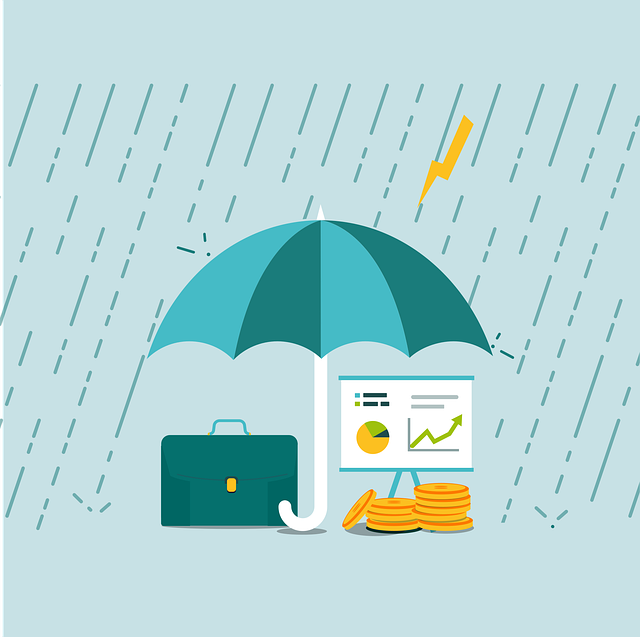Managing personal finance effectively is essential for long-term financial security and stability. This guide helps beginners navigate the key components of personal finance, including budgeting, saving, investing, and understanding credit. It's crucial to start with tracking your income and expenses to get a clear picture of your finances, which will inform your personal financial plan. Savings are a protective measure against unexpected costs and a cornerstone for goals like retirement planning. Investing can seem complex but is made manageable through education on various instruments like stocks, bonds, mutual funds, and ETFs, each with its own risk-return profile. Learning about finance doesn't have to be daunting; resources such as books, online courses, webinars, and workshops make mastering personal finance principles accessible. Budgeting is a fundamental practice that helps you manage your income effectively, with methods like the envelope system or budgeting apps aiding in categorizing essential costs and discretionary spending. An emergency fund is critical for financial resilience, acting as a shield against life's unpredictable events. Debt management is also vital, requiring strategies like debt consolidation or settlement to ease the burden and accelerate repayment, especially when high-interest debts are involved. For complex personal finance issues, seeking advice from financial experts can provide tailored solutions for your unique situation. With the right knowledge and tools, personal finance becomes a clear and actionable path to achieving financial well-being and independence.
Navigating the complexities of personal finance empowers individuals to make informed decisions that foster financial health and security. This article serves as a comprehensive guide, delving into the essential aspects of financial management, from grasping the fundamentals to mastering sophisticated investment strategies. We’ll explore topics ranging from establishing a solid budget and emergency fund to understanding the role of insurance and retirement planning. Additionally, we’ll cover practical steps for optimizing taxes, managing credit scores, and making informed purchasing decisions. With insights into asset management, real estate investments, and leveraging technology, readers will gain valuable knowledge to secure their financial future. Whether you’re just starting out or looking to refine your financial strategy, this guide offers a wealth of information tailored to enhance your personal finance acumen.
- Understanding Personal Finance: A Beginner's Guide
- Budgeting Basics: Allocating Your Income Effectively
- The Importance of an Emergency Fund and How to Build One
- Debt Management Strategies for Financial Freedom
Understanding Personal Finance: A Beginner's Guide

mastering personal finance is a foundational step towards securing your financial future. For beginners, the concept can seem daunting, but with the right knowledge and tools, it becomes manageable. Personal finance encompasses a wide array of skills, including budgeting, saving, investing, and understanding credit. It’s about making informed decisions that align with your financial goals and lifestyle. To start, individuals should familiarize themselves with their income and expenses to establish a clear picture of their cash flow. This allows for the creation of a budget, which serves as a roadmap for your money, guiding you on how much to save, how much to spend, and how much to invest.
Savings play a crucial role in personal finance, acting as a buffer against unforeseen expenses and financial emergencies. It’s also the bedrock upon which long-term goals like retirement planning can be built. Investing, another critical aspect, requires an understanding of various investment vehicles such as stocks, bonds, mutual funds, and ETFs. Each has its own risk profile and potential returns. Education on these topics is readily available through books, online courses, webinars, and workshops. By taking advantage of these resources, beginners can demystify personal finance, transforming it from an intimidating subject to a clear path towards financial well-being and independence.
Budgeting Basics: Allocating Your Income Effectively

Managing personal finances effectively begins with a solid understanding and implementation of budgeting basics. Allocating your income judiciously is the cornerstone of personal finance health. It involves dividing your earnings into categories that reflect your spending priorities and needs. A common strategy for beginners is to use the envelope system, where cash for different expenditure areas like groceries, entertainment, and savings is kept in separate envelopes. This method helps to visually monitor how much of your income is allocated to each category, ensuring that you do not overspend in any one area. Tracking your income and expenses can also be facilitated by budgeting apps or spreadsheets, which provide a clear overview of your financial state and help adjust your spending to align with your goals. By categorizing your earnings into essentials, such as housing, utilities, and food, and discretionary spending like dining out or subscriptions, you can maintain a balanced budget that supports your personal finance objectives.
Moreover, effective allocation of income requires regular review and adjustment to reflect changes in circumstances, such as income fluctuations or unexpected expenses. It’s important to revisit your budget periodically to ensure it remains a realistic and effective tool for managing your finances. Prioritizing savings and emergency funds within your budget is also crucial, as these will provide financial stability and cushion against unforeseen events. By consistently applying the principles of budgeting, individuals can gain greater control over their personal finance, make informed decisions, and work towards achieving long-term financial security.
The Importance of an Emergency Fund and How to Build One

Managing personal finance effectively is a cornerstone of financial stability, and within this realm, one of the most prudent steps an individual can take is to establish an emergency fund. This financial safety net serves as a buffer against unforeseen events such as job loss, medical emergencies, or urgent repairs, which can otherwise derail one’s financial plans. The importance of an emergency fund cannot be overstated; it acts as a shield to protect your finances from the unexpected. To build this fund, start by assessing your monthly expenses to determine a realistic savings goal. A common recommendation is to save three to six months’ worth of living expenses, but the exact amount can vary based on personal circumstances and the level of financial security desired. Begin by setting aside a small portion of your income each month, gradually increasing the amount as your budget allows. Consider using automatic transfers to a savings account to ensure consistency and avoid the temptation to spend what you’ve earmarked for emergencies. By prioritizing this essential component of personal finance, individuals can significantly enhance their resilience against financial shocks, securing their overall financial health.
Debt Management Strategies for Financial Freedom

Effective debt management is a cornerstone of achieving personal financial freedom. A strategic approach to handling debts can alleviate the stress associated with owing and pave the way for a more secure financial future. One of the first steps in managing debt is understanding the different types of debt one has, such as secured loans (like mortgages) and unsecured loans (such as credit card balances). Prioritizing debts based on interest rates—typically targeting those with the highest rates first—is a proven method known as the avalanche method. This approach can minimize the amount of interest paid over time, leading to substantial savings.
Another critical aspect of debt management is creating and adhering to a budget. Personal finance requires careful tracking of income and expenses, which allows for informed decision-making. By allocating funds specifically towards debt repayment, individuals can make significant strides in reducing their liabilities. Additionally, it’s important to explore options for debt consolidation or settlement, which can simplify monthly payments and potentially lower the overall cost of borrowing. For those struggling with debt, seeking professional advice from certified financial planners or credit counselors can provide tailored strategies that align with one’s unique financial situation, ultimately guiding them towards the path of personal financial freedom.
Effective management of personal finance is a cornerstone of long-term financial health. This article has outlined essential strategies for beginners to understand, budget, save, and manage debt effectively. From grasping the fundamentals of personal finance to strategizing on building an emergency fund and implementing debt management plans, the pathway to financial freedom becomes clearer. By allocating income wisely and preparing for unexpected events, individuals can secure their financial future. It’s a journey that requires commitment and continuous learning, but the benefits of achieving financial stability are well worth the effort. Remember to revisit these concepts often as your personal financial situation evolves. Personal finance mastery is attainable with the right knowledge and discipline.



